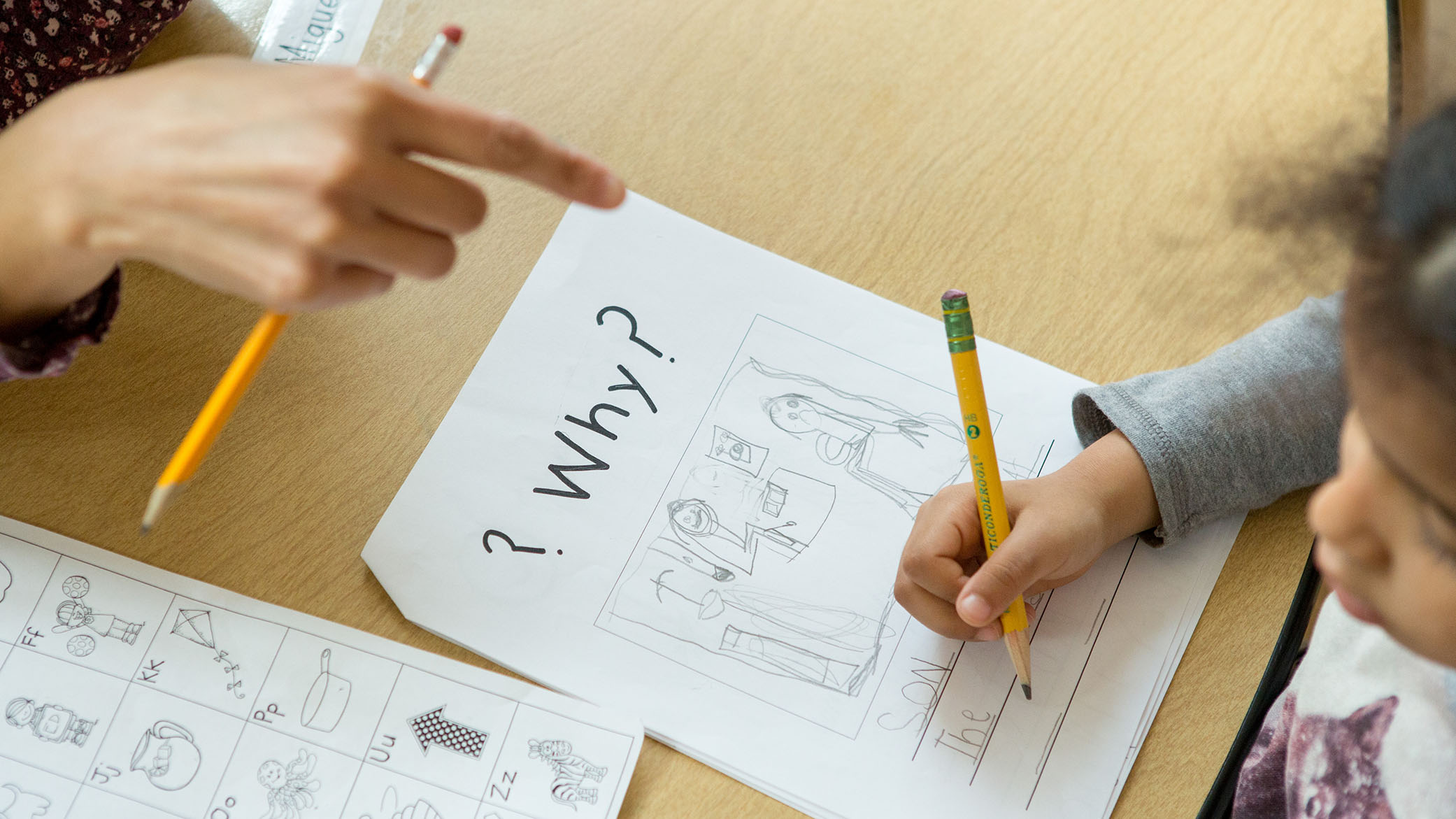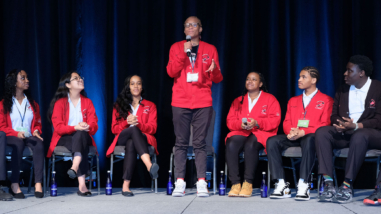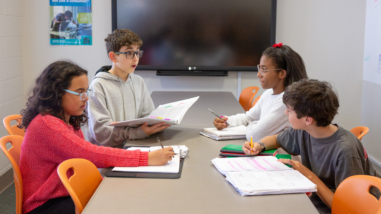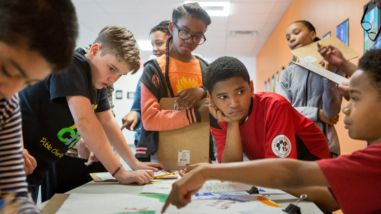Talking about K-12 education

Photo by Allison Shelley/The Verbatim Agency for American Education
One of the few things Americans tend to agree on is that our public education system isn’t giving all of our students what they need to succeed after graduation. In the face of difficult job markets, increased automation, surprise elections and sky-high college tuition fees, we’ve spent the last two decades trying out idea after idea to “fix” a broken system. Despite all the ideas and agreements, stubborn opportunity gaps and inequities remain.
With the rapid changes to the system, in the process of our Education program’s strategy refresh this year, we wanted to understand where Americans differ in their opinions about the role of public education itself, and how we could do a better job of communicating about it. Public Agenda’s recently completed report, Our Next Assignment: Where Americans Stand on Public Education, was based on reviews of several existing public opinion polls and three live focus groups with employers across the country. The overarching themes that they uncovered reveal a great deal about the narratives that surround education in our country, and how effective communications strategies can draw on them.
Beyond the Basics
Blue Ash, Ohio
In the wake of the Common Core testing opt-out movement, we commonly heard laments about the public’s resistance to changes in education. But the Public Agenda report reveals that at a high level, across all groups, there seems to be a hunger for schools to do more than English, math, and tests. A little less than half of Americans believe that the main goal of school is to prepare students academically. Others cite preparing students for work or to be good citizens as the primary purpose of education. And many respondents specify that this means schools need to work on “real-life skills” or “teachability” with their students.
From a communications perspective, I hope this means we can be less skittish about naming non-academic outcomes. In fact, the research would indicate that we are more likely to resonate with folks if we admit that a good education has to be about more than subject matter expertise, and more closely linked to the real world. We can lean in to the idea that today’s students are expected to be lifelong learners, instead of empty vessels into which a finite amount of information can be poured. As a result, the idea that schools need to build confidence, skills, and agency as much as they need to focus on academic topics can lead our communications strategies.
The Test Is Not the Answer
Blue Ash, Ohio
The research is consistent in finding that most people do not believe in standardized tests as useful markers of success. People put interpersonal skills at the top of the list of indicators of school quality, while they know that multiple-choice tests are not measuring interpersonal skills at all. Similarly, the report finds that employers agree that academic scores are not the most needed skill for jobs (writing proficiency and communications skills top that list). But at the same time, employers are using GPA scores to screen their candidates, and parents are left to use test results as a primary indicator of school quality. So while the skills they are looking for aren’t covered by these quantifiable numbers, they nevertheless rely on them as proxies for quality.
From a communications perspective, we’ve known for a long time that conversations about testing and test results are divisive. Words like “assessment” and “test” went from being political hot potatoes at the height of the opt-out movement to being treated like four-letter words by some policymakers even today. What the Public Agenda research reveals is that, if we want to talk about tests, we need to be nuanced and careful in our approach. Remind audiences that typical, multiple-choice exams are not assessing the types of interpersonal skills that most people describe as necessary for a high-quality education. Acknowledge that testing as a form of accountability isn’t the best use of this tool. At the same time, since folks do want to hear about interpersonal skills, we may have an opportunity to reframe how people think about tests – from pencils and Scantrons to performance evaluations or portfolio defenses.
Pointing Fingers
Oakland, California
One interesting finding across the research is that while most people feel schools and education systems are not doing enough to prepare students, they are also quick to blame individuals for “failing” in this subpar system. For instance, employers across all focus groups expressed the belief that parents are too lenient and students are lazy, while simultaneously recognizing that schools are underfunded and starved of the resources they need to help children succeed. Similarly, parents rely on teachers and educators to give them information about what is happening in schools, but have a mistrust of people closely involved with the education “bureaucracy.”
Communicators cannot afford to ignore these narratives. Negative narratives like these may be easy to work around at first, but can be big barriers when it comes to bridging the gap between schooling and career, or within communities. One way to do this is to emphasize systemic barriers and challenges over individual ones in our communications, e.g. talking about the “opportunity gap” instead of the “achievement gap” between different groups of students. Another way would be to show the stories of parents and students who try to overcome the barriers in the system. To borrow a phrase, if we want to change the narrative, we need to change the narrators. If our students become our storytellers, we can not only shift how people think about their potential, but also simultaneously build their skills as we go.
Learn more about this research and ideas for what we can do to shift the conversation by joining Public Agenda for a webinar on November 15. More details here.



